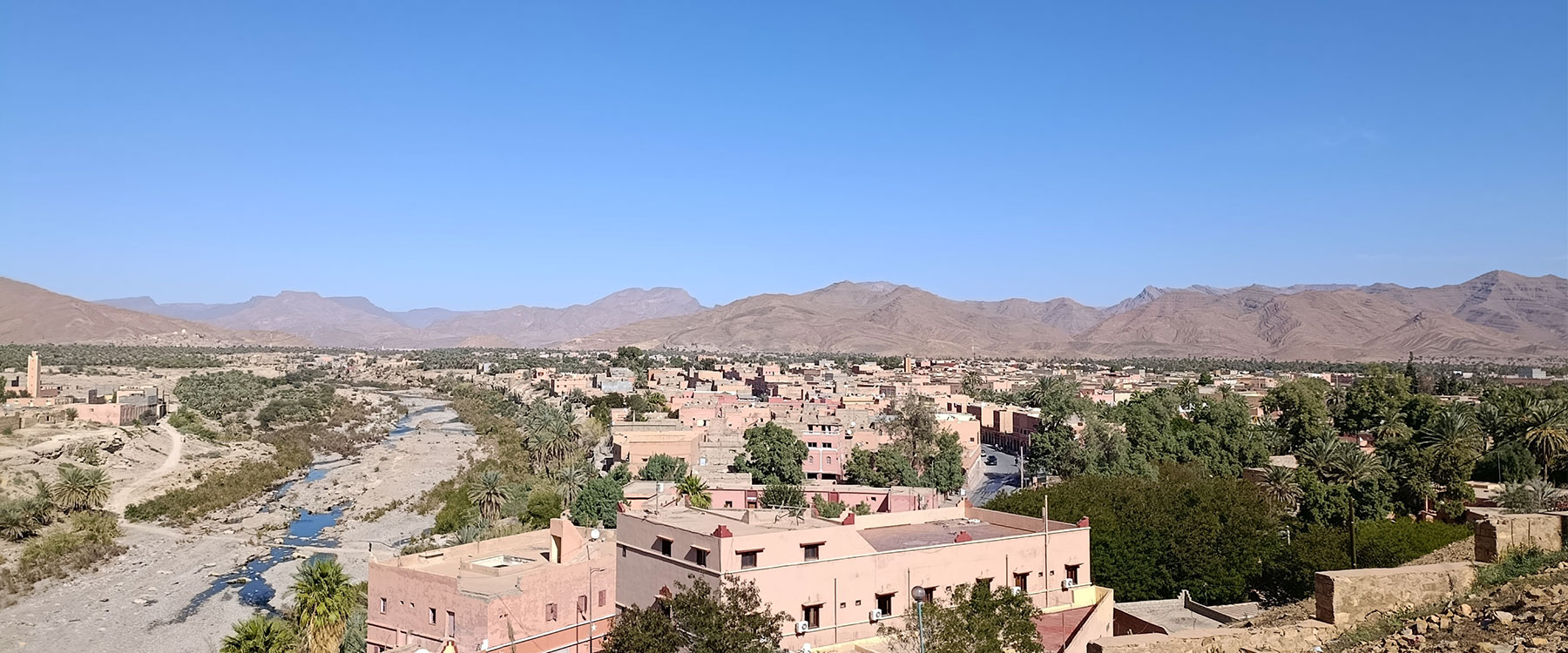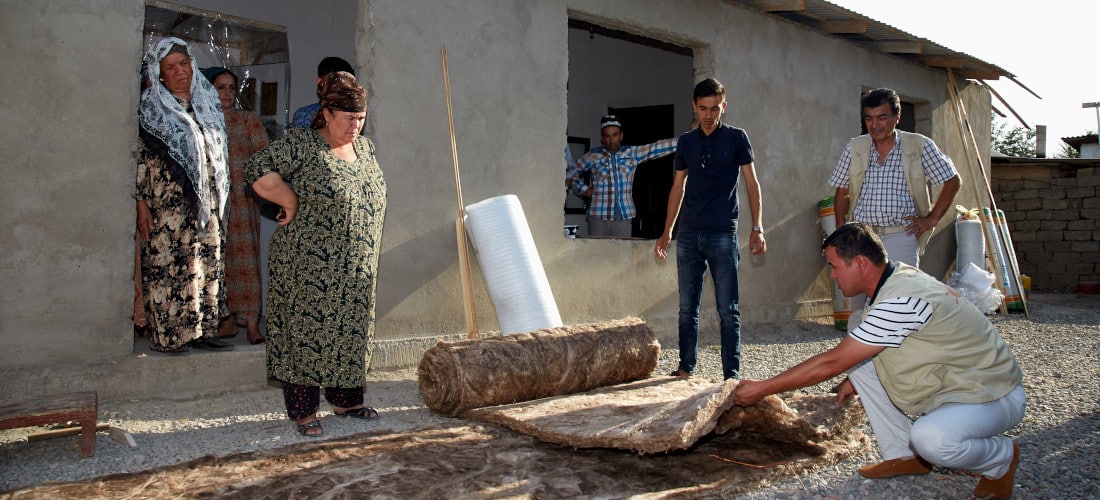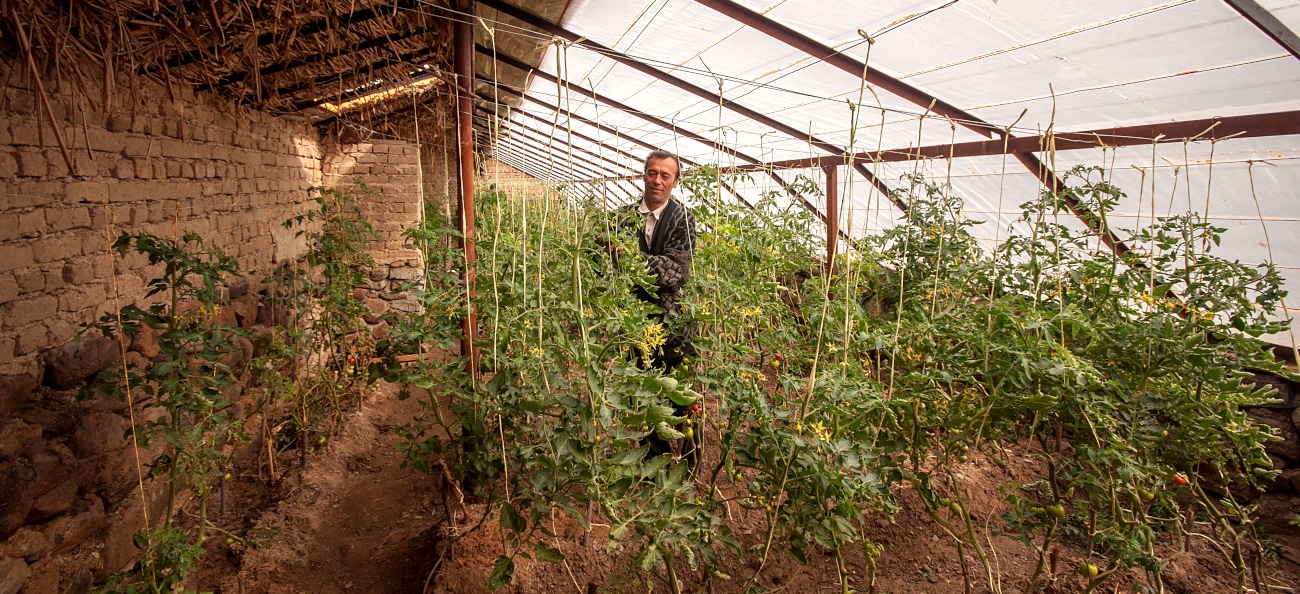In Tajikistan, Geres is working to ensure greater resilience and better living conditions for rural communities
In the Rasht valley, poverty and climate warming are impacting food production and daily life. Launched in April 2022 and spanning five years, the project aims to provide rural inhabitants with a decent lifestyle, by improving access to sustainable food sources, drinking water and sustainable energy solutions.
The food security of the rural population of Tajikistan is under threat
In Tajikistan, around 70% of the population live in rural areas and are mainly engaged in subsistence farming. Consequently, the proportion of people living below the poverty line can reach 74% in some places.
Unfortunately, we are not all equal when it comes to access to resources. In this Central Asian country, the growing season is limited (from May to August) and farming is hampered by serious soil degradation, often difficult access to water and increasingly frequent natural disasters such as landslip, flash flooding and mudslides.
Another risk factor is intensive gathering of wood, the main source of domestic energy. Excessive wood consumption contributes to the erosion of the Tajik ecosystem and plays a part in soil degradation, which explains why there are so many landslides.
Finally, there is the human factor: houses are poorly insulated in many rural areas, so women and children find themselves burning ever more wood to keep warm. This is an additional burden on top of their daily chores and makes it harder to go to work or school (for children) and generate income to boost their independence.
As a result, it is important and has become urgent to offer an integrated rural development response both to reduce poverty and to improve the food and nutritional security of Tajik communities while preserving the balance of the agricultural ecosystem. A key challenge for the new project developed by Geres and its partners.
Coping with climate risks through sustainable management, better access to natural resources and greater awareness in rural Tajikistan
Launched with the NGO Caritas and two Tajik partners, Rushdi Kuhiston and Rushnoi, this new project, which runs until 2027, focuses on climate change resilience and improving the well-being of rural communities. The target area is the Rasht Valley and the districts of Tajikobod, Rasht and Laksh.
The objective is to create a paradigm shift in the sustainable management of natural resources, addressing irrigation, access to and sanitation of drinking water, management of agriculture and agro-sylvopastoral systems, and energy efficiency of individual and public buildings.
“By encouraging resilience to climate change, our project is tackling a very topical issue. This is obvious when visiting at-risk communities in the Rasht valley.
I am particularly pleased with the integrated approach we have adopted to solve this problem by combining sustainable natural resource use, low-energy construction and improvement of farming practices.” Kris Lizak, Geres representative in Tajikistan.
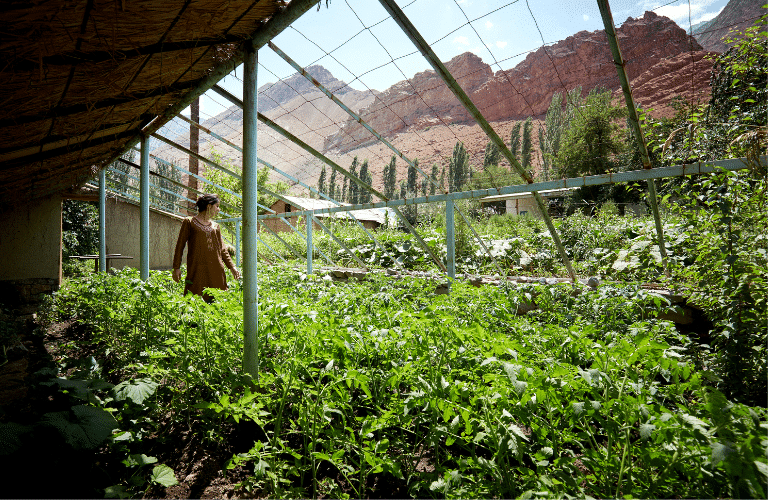
Bioclimatism, thermal rehabilitation, improved stoves and energy and climate awareness lie at the heart of Geres solutions.
To help Tajik communities, Geres is planning to set up 10 passive solar greenhouses and 10 bioclimatic storage cellars for groups of women farmers. An ecological, effective approach which should extend the growing season and enable the women to store crops and sell them at better prices.
By storing solar energy by means of water-filled cans or having a wall painted black, passive solar greenhouses not only help to avoid frost but also keep the greenhouse temperature stable at night in the early or late season. Thanks to this renewable energy, farmers can increase their production capacity and diversify their vegetable crops.
Bioclimatic storage cellars (a hole dug in the ground in which crops are preserved) are known to reduce losses during the winter season and smooth out farmers’ income during leaner seasons.
In addition to setting up 10 new cellars, it is also planned to rehabilitate 30 existing cellars to improve the livelihoods of the target communities.
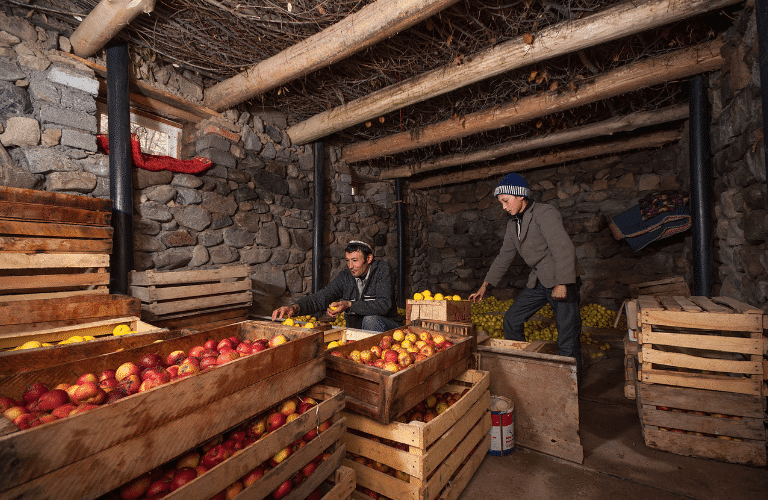
Example of an underground bioclimatic cellar in Tajikistan, Oshiba.
Schools, male and female artisans and more than 1500 rural households will benefit from the project
The project is keen to serve a wide variety of beneficiaries: although undoubtedly ambitious, the decision is necessary to drive forward integrated rural development activities.
“The decision is ambitious but necessary to pilot integrated rural development actions”. Kris Lizak, Tajikistan representative for Geres.
Amongst the flagship measures: in collaboration with the Committee on Emergency Situations of Tajikistan, Geres will insulate schools in the Rasht valley to improve thermal comfort during lessons and so reduce the children’s exposure to diseases.
For its part, the NGO Caritas will concentrate on access to water and renovating the toilets in these establishments, providing better quality water and improving sanitation, which will again reduce exposure to diseases.
Other important project features: relocation of 10 families affected by natural disasters and large-scale campaigns to raise awareness of low-energy housing solutions. This approach will involve organizing fifty training sessions for male and female artisans and households on the subject of energy-efficient solutions, thermal insulation and simple, more affordable DIY solutions.
Finally, to ensure the sustainability and continuity of these operations, Geres and its partners have undertaken to work with banks and micro-finance institutions to encourage the provision of green loans, as well as with local architects to encourage the building of low-energy houses.
This publication was produced with the financial support of the European Union. Its contents are the sole responsibility of Geres and do not necessarily reflect the views of the European Union.

Geres news in Tajikistan

New opportunities for unemployed youth in Tajikistan
In october 2021, Geres in collaboration with local NGO’s, launched a series of action to help tackle tajik youth unemployment. Part of ...
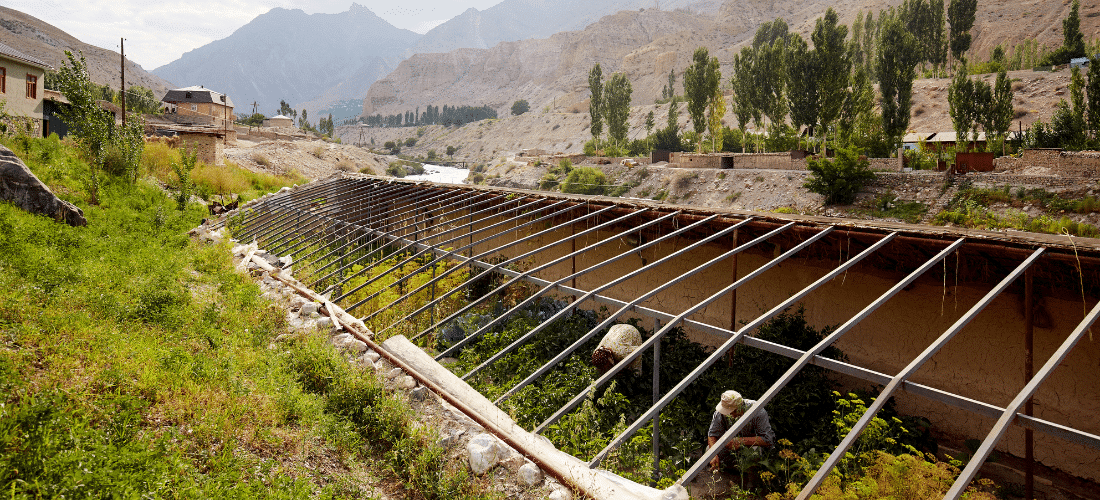
In Tajikistan, Geres is working to ensure greater resilience and better living conditions for rural communities
In the Rasht valley, poverty and climate warming are impacting food production and daily life. Launched in April 2022 and spanning ...
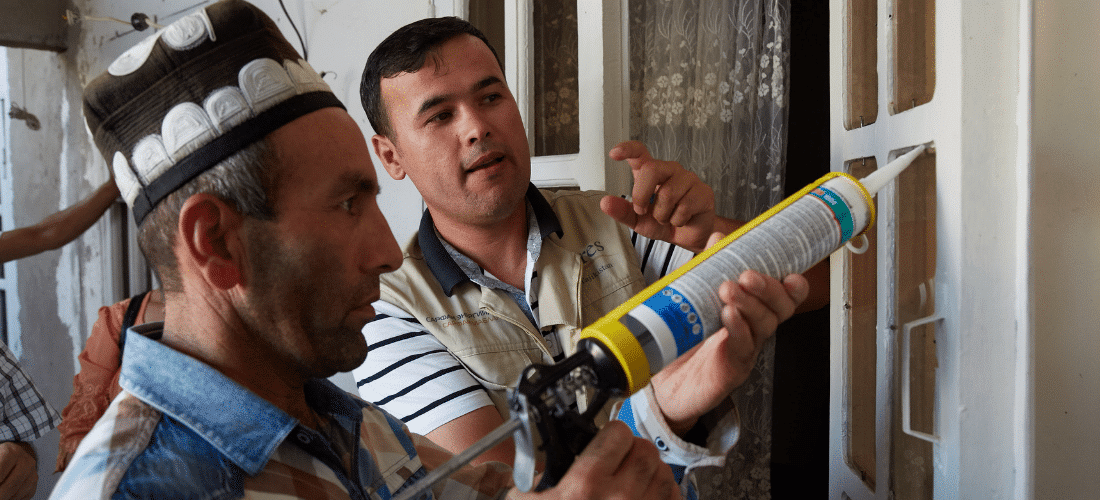
Innovative solutions warm houses up and trigger initiatives in Tajikistan
Testimonials. In 2021, Geres is launching a new project on sustainable energy solutions for Tajik housing. Munisa and her father, ...
Geres projects in Tajikistan
WOULD YOU LIKE TO TAKE ACTION
AND SUPPORT WHAT WE DO?
Tell us who you are and find your means of action.

